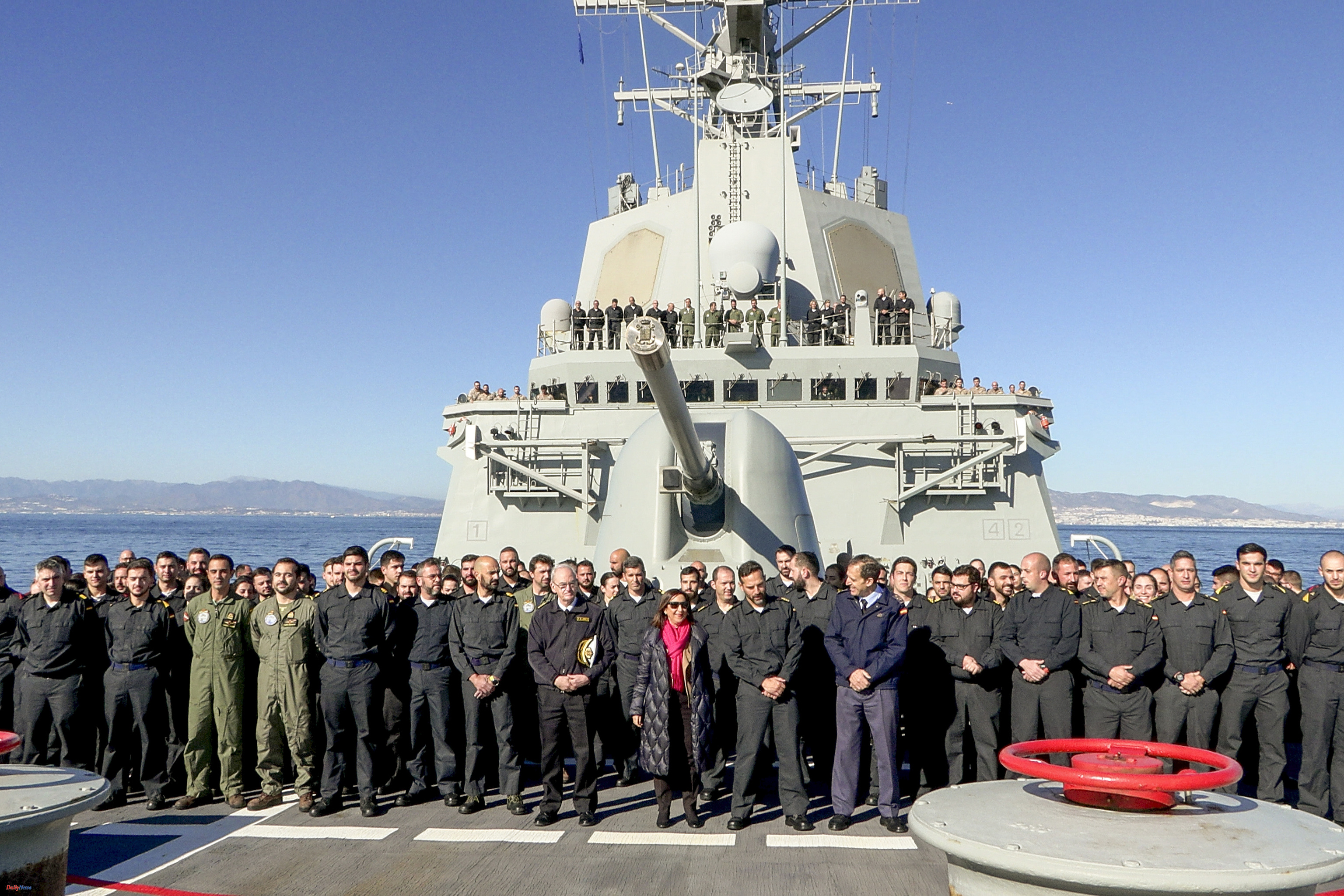The engines of the frigate Méndez Núñez go at full power directly to Ferrol. The 230 people who make up the crew finish on the 22nd a four-month mission - 202 days of navigation - monitoring the passages of Russian ships in the Mediterranean. Méndez Ñuñez returns to the port as a soldier with the satisfaction of having fulfilled his duty and after an especially complicated mission due to the war between Russia and Ukraine. They reported all of this this Monday in Mediterranean waters, 15 kilometers from the coast of Malaga, to Minister Margarita Robles, who embarked to congratulate them on the success of the mission and because they can spend the Christmas holidays at home with their families.
Commanded by frigate captain David Díaz-Caneja, it left Galicia on August 18 to enlist in NATO's Permanent Naval Group number 2 within the Noble Shield mission. An operation with the participation of France, Turkey, Greece, the United Kingdom, Italy and Denmark, but in which only Méndez Núñez has been deployed for 202 days, being the most important contribution. During this time, the work of show of force of the allied countries in the Western Mediterranean has been combined with permanent training to be ready for high capacity scenarios. In fact, during the minister's visit an evacuation exercise was carried out in case of a missile impact.
In the four months that they have been at sea, the Méndez Núñez has investigated the movements of 10,228 ships. Of them, they have had 31 interactions with Russian ships, 14 from Putin's Naval Force and the rest merchant ships, although they have acknowledged that they have ties with their country's naval forces. As the frigate captain explained, once they encounter a Russian ship, there is a NATO protocol to follow and de-escalate the tension. Monitoring is done at a safe distance from the vessel in order to obtain information on its movements.
Díaz-Caneja acknowledged that there is no communication between the ships, that they try to avoid misunderstandings and that while the NATO units do not carry out harassment while following the ships, the Russians do try to put them under that pressure. on the contrary. In any case, the presence of allied forces protecting the Mediterranean countries is more numerous than the Russian ones. And the Méndez Núñez has ensured security for four months, and now they are preparing to arrive home while others take over, such as the Sentinel, which last week escorted a Russian submarine as it passed through Spanish waters.












